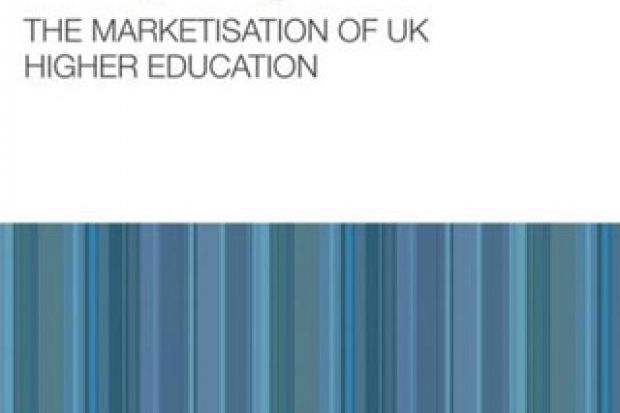Much has been written recently about the impact of successive governments’ attempts to cajole the UK higher education sector into operating on market principles. The policymakers’ vision is one of greater economic efficiency, as student-consumers “drive up quality” through putting their money into courses and institutions proven to offer employability, satisfaction and value for money. Even a cursory awareness of what actually goes on in a university can make criticisms of such policies irresistible.
Roger Brown and Helen Carasso’s book stands out from the crowd as it offers substantially more than polemical shots at an easy target. Everything for Sale? offers a thorough review of UK higher education policy from 1979, the year it was announced that students from outside the UK would be expected to pay full-cost tuition fees, to the present day. No relevant document, speech or piece of legislation is ignored in this account that combines in-depth policy analysis with a survey of literature detailing empirical studies and personal accounts of the impact of marketisation. This book furnishes a chronological record of the shift from higher education being predominantly a public service to a purchasable private good, and it is primarily focused on the impact of funding changes on the sector.
Central to this impact has been the removal of the block grant through which universities, until recently, received the bulk of their income. Brown argues that the importance of the block grant lay in its being “not directly associated with particular aspects of academic activity”, and as such its distribution “respected the traditional collegial view of a university as an independent, self-governing community of scholars”. The impact of tuition fees and successive research assessment exercises has gone a long way towards overturning the Haldane principle, which sought to reduce opportunities for institutional funding to “facilitate the political direction of academic activities”. The relationship between the funding of universities and their institutional autonomy is a recurring theme. The state’s reluctance to fund higher education has not been met by a corresponding fall in bureaucratic regulation. Indeed, the opposite is the case, and Brown points to the trend towards “growing state, and reducing academic, control over the universities”.
Brown complements his rigorous analysis with insights garnered from his unique position as both a former senior civil servant and a former vice- chancellor. He has never been just a neutral observer of higher education policy. This can make for a gripping read as he relays information known only to a close circle of individuals, for example, the pressure that civil servants are under to turn policy documents around in a very short space of time - and the errors that may result. Perhaps the book’s most devastating conclusion, and one revealed almost unintentionally by Brown and Carasso’s analysis, is the extent to which government ministers and policymakers have, over three decades, lacked a coherent view of the purpose of higher education. There have been various attempts to impose economic goals on the sector, or even political goals relating to social justice or, more recently, the promotion of individual social mobility. Yet go beyond the attempts by successive governments to manage instrumental outputs in an economically efficient manner and it becomes apparent that there is no sense that higher education has any unique claims.
Everything for Sale? successfully exposes the philistinism at the heart of the policymaking process. It shows that no government minister or policy adviser over the past 30 years has had any sense of higher education as being concerned with knowledge in the form of society’s collective intellectual and cultural capital, and the importance of preserving and passing this on to future generations for their own critical interpretation. Brown tries to counteract this with references to knowledge as a public good, and a discussion of the social and educational benefits of widening participation policies. This is a useful rejoinder to his analysis.
Perhaps owing to his background, Brown’s views of higher education, and knowledge in particular, remain quite technical. He suggests that better education can be legislated into existence through improved quality enhancement procedures, and that standards can be maintained through more sophisticated benchmarking. After years of crushing instrumentalism in higher education policy, perhaps we need a little more passion and debate within the academy.
Everything for Sale? The Marketisation of UK Higher Education
By Roger Brown, with Helen Carasso
Routledge/Society for Research into Higher Education, 238pp, £90.00 and £26.99
ISBN 9780415809795, 9801 and 9780203071168 (e-book)
Published 4 February 2013
Register to continue
Why register?
- Registration is free and only takes a moment
- Once registered, you can read 3 articles a month
- Sign up for our newsletter
Subscribe
Or subscribe for unlimited access to:
- Unlimited access to news, views, insights & reviews
- Digital editions
- Digital access to THE’s university and college rankings analysis
Already registered or a current subscriber? Login




